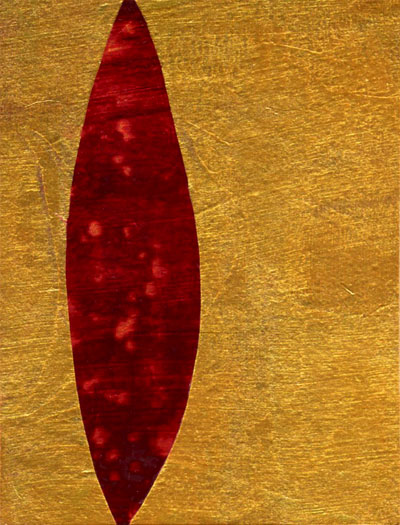
Into the Wound © Jan L. Richardson
During this season we are revisiting the women who appear in the Lenten portion of my first book, Sacred Journeys. The title of the Lenten section is “Remembering Our Wounds.” The readings for Lent explore stories that can take us to difficult or painful places; these are stories we have often neglected or forgotten or hidden away in the Christian tradition. Yet these are tales that need to come to light; we need to tell them and talk about them and see where they might take us. We do this not simply to recall or revisit the wounds that women have borne across the ages; though it is a beginning, returning to the wounds is not enough. The act of remembering is not complete until we have responded—until we have discerned what we can offer for the healing of these wounds, and have begun to do so.
Nearly half a lifetime since I first began working on the book, I find myself struck by what I see as I spiral back around these women at this point in my journey. From where you are in your own path, what do you see as you travel with these women? What wounds within you or around you do the wounds of these women touch? How might their stories draw you through the wounds into a place of healing, not just for yourself but for the life of the world?
This week, with a chapter titled “Her Body Broken for Many: The Unnamed Concubine,” we return to the book of Judges. Shortly after the story of Jephthah’s daughter, we find another “text of terror,” as Phyllis Trible describes it. As we attend to the story of this woman—whose name, as with so many women in scripture, has not been left to us—we may find the way daunting. Yet we do not go it alone. Thank you for your company on this path, and blessings to you along the way.
Invocation
Abiding Spirit, accompany me in uncertain journeys. When I find the way filled with fear, may I know you as a faithful companion.
Text
Context
In the story of the rape and murder of the unnamed concubine, we find a lesson in the cycle of domestic violence between spouses or partners. Those who have studied and/or lived with such violence have identified three phases that abusive relationships tend to follow: the stage of escalation, when tensions mount; the stage when an actual abusive episode occurs; and the “honeymoon” stage, when the abusive partner attempts to win the other partner back. This final stage may continue for a little or a long while, but in an ongoing abusive relationship, it rarely lasts.
The writer of the book of Judges relates this story with a significant amount of detail, but we never hear the woman’s voice. We never even know her name. We do not know why she left her husband. But as the text unfolds, we witness the story of a bold, decisive woman who, by the end of the story, has been bartered to secure the life and the safety of her husband and his host.
In an unpublished paper entitled “Imaging a Christian Feminist Theodicy,” my friend Dorri Sherrill retells this story from the perspective of the unnamed concubine. To a woman who has no voice in the text, Dorri gives a voice through her own imagination. The readings for Monday through Friday will begin with an excerpt from Dorri’s paper, so that we may hear words the unnamed woman might have said or thought.
Monday
“You, O Yahweh, know how painful my life has been. I was bought—purchased, I was purchased—as a concubine, and the man who ‘owns’ me does not honor me. At best, I am as any other of his possessions.” (Excerpt from Dorri Sherrill)
A Woman Possessed
She is
a woman possessed
by pain
by despair
by aloneness
by desert
by wind
by dryness
by sorrow
by loss
by shame
by trouble
by him
by emptiness
by secrets
by silence
by choked breath
by fear-full hands
by hopelessness
by hesitation
by law
by unknowing
by stories
by possibilities
by the cusp
by the threshold
by the edge
by the verge
by flight.
—Jan Richardson
Question for reflection
What possesses you?
From Sacred Journeys © Jan Richardson
If you have just joined us, I invite you to visit A Season of Spiraling to learn more about what we’re up to here at the Sanctuary of Women during Lent. Today’s artwork originally appeared here at The Painted Prayerbook.

I cannot think of any story more horrible than Judges 19. I discovered it early in my Pastoral Studies. It is probably there and then that as a woman I rebelled against the Roman patriarchy. The rebellion is still with me and you sharing this post here revives all the pain I experienced then and still experience today.
Thank you for speaking about the unspeakable.
Claire, thank you for your words and for your willingness to face the pain instead of burying it. I am grateful for your blog, where with such intention you turn your pain into a welcoming and hospitable place of beauty and courage. You recently quoted two of my favorite folks: Abba Moses and Roberta Bondi. Roberta was one of my professors in seminary, and I have often returned to her books To Love as God Loves and To Pray and to Love. In this season, thank you for your thoughtful words about the desert mothers and fathers. Blessings to you in this wilderness time, and may your journey be marked with beauty and grace, and with spaces of respite and delight along the way.